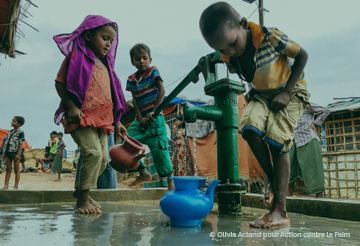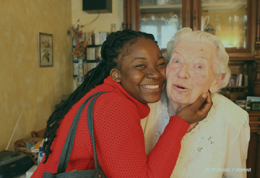
What impact on society ?
How social impact finance addresses major challenges
Unemployment has been THE major social issue in France over the last thirty years. The number of families living beneath the poverty level has also increased significantly, leading to dramatic housing problems. Environmental issues such as organic farming or clean energy have cropped up more recently. The development of third world economies has also been a constant concern. These four lines of business (inclusion through labor or housing, green businesses and aid to the developing world) have been up to now the main priority of social impact finance in France.
25 years of commitment
- 1995 : Creation of Finansol by 12 founding members (Adie, Autonomie et Solidarité, Caisse des Dépôts, Caisses d’Epargne, CCFD-Terre Solidaire, Crédit Coopératif, Crédit Mutuel, Fédération des Cigales, France Active, Garrigue, Habitat et Humanisme and La Nef)
- 1997 : Creation of the Finansol label to allow investors to distinguish solidary investments
- 2013 : Creation of the Impact Investing Task Force, chaired by Sir Ronald Cohen at the G8 Summit in London
- 2016 : Creation of Impact Invest Lab (iiLab) by 6 founding members. Launch of the first public call for proposals on Social Impact Bonds (SIB)
- 2017 : Social savings exceed an outstanding amount of €10 billion
- 2020 : iiLab takes on the mission of creating a market authority for impact investing in France
- 2021 :
- Total outstanding amount of 4.4 billion euros worth of social impact investments
- Social savings exceed a total outstanding amount of €24 billion
- 2022 : Social savings exceed a total amount of €26,3 billion
The current boom
Why such a spectacular increase? Since January 1rst 2010, all French companies practicing what is known as 'corporate savings plans' or plans d’épargne enterprise (PEEs), must offer their personnel 'social impact corporate savings fund'. Such a fund must invest between 5 and 10% of its assets in equity or debt of social concerns.
Subscribing to these funds is not compulsory but is often highly recommended both by management and trade unions. Since only part of that money ultimately flows towards social businesses, the effective amount of social financing is much lower, as stated above.
Where the money goes
Where does that money go and what is its impact? In 2022, it is estimated that, thanks to social finance, roughly 1.440 people have been housed in very low-rent apartments. More than 80 stakeholders of economic development inemerging countries were supported by French social finance. And around 8 381 households now rely on clean energy.




